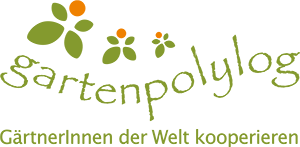Education is an inherent part of community gardening, and it is very important to us. Within the garden, learning is a part of every action and interaction.
We offer (below) different educational formats (courses, seminars, workshops, exchange meetings, etc.) to promote and to stimulate learning processes, laying the groundwork for a rich environment of communal exchange and individual contribution.
We offer programs in and for community gardens, garden courses in cooperation with ARCHE NOAH, events for children, adolescents, and families, and programs for schools, kindergartens, and after-school care centers. On request, we give lectures and / or develop tailored educational plans.
Seminars
Organization and Group processes in the Community Garden
-
You want to start a community garden, but you don't know where to start . . .
- Are you just starting a community garden and looking for tips for a good start? Do you need an idea of what next steps are?
- Your garden group has been gardening for several seasons and the motivation is now at a low point - you ask yourself: ‘What's going on?’ and: ‘What can we do?’
- Do you want to set up good organizational structures for your garden and deal with current challenges?
Organization and Group processes in the Community Garden is for people who want to start a community garden - and for those who have already started one. This is not about plants and beds, but about the social garden; in short, it’s about togetherness. People, groups, decisions, and organization are at the center of the 2 modules: because a garden is a place where a group grows and that takes as much care as a plant bed does.
On the two weekends we will discuss how to establish and maintain the organization and communal aspects of a garden. In the process, what are the common phases and challenges, and most importantly, how can these be overcome?
What are you getting?
-
Knowledge: You get a tangible overview of the phases that occur in community gardens and find out where your group is currently.
-
Tools: You get tools to deal with challenges along the way and tips and tricks for organization and group processes.
-
Community: You will learn how garden groups organize themselves and deal with difficulties (with examples of specific resolutions).
Methodology:
A mixture of keynote speeches, small group work, and exchange times give room for different forms of learning. Together with other participants, you can practice, try out, and learn from each other in mutual exchange. You will learn to understand and improve the organization and communication within a garden in an experience-oriented and practical way.
Supervisors:
DIin Cordula Fötsch (Garden Polylog Association)
Mag.a Ursula Taborsky (Garden Polylog Association)
Module 1: Organization of a community garden
This module is dedicated to the organizational challenges and opportunities for garden groups: what practical steps, agreements, and methods are required in each phase.
Module 2: Group processes in the community garden
In this module, the personal and group dynamic processes of a garden group are brought to light, and specific tools and approaches are discussed for the different phases.
Excursions
We organize excursions to community gardens in Vienna, on foot or by bike. The duration, number of gardens, and type of gardens are tailored to the wishes of the group.
This is ideal for school and university excursions, company outings, and groups of interested people.
Workshops
We offer workshops on community gardening for people of different ages and different prior knowledge and interests. Topics include:
- Composting in the city
- Composting facilities and composting in school
- Soil education for children and young people
- Extensive gardening
- Use of solar energy in the community garden
We are happy to put together individual workshop offers upon request.
